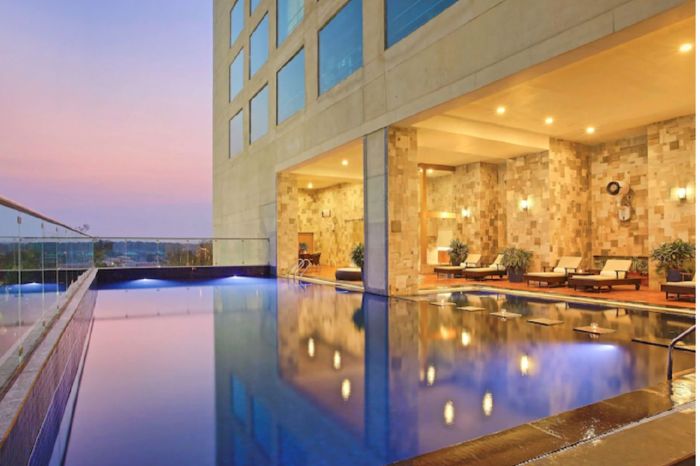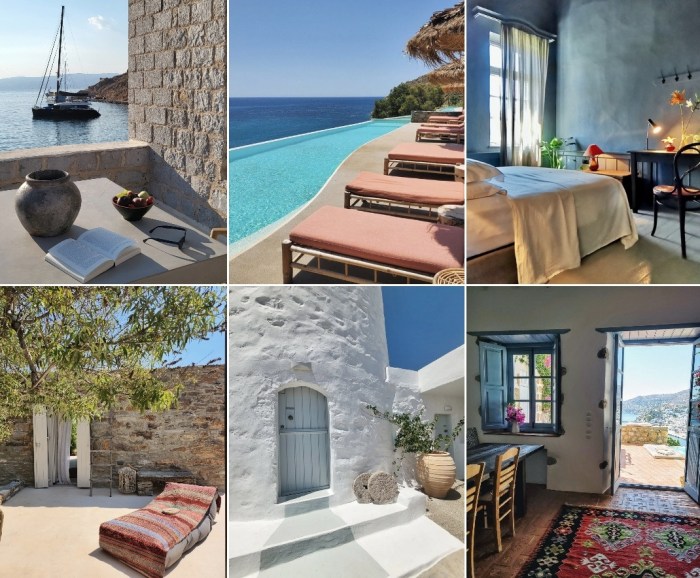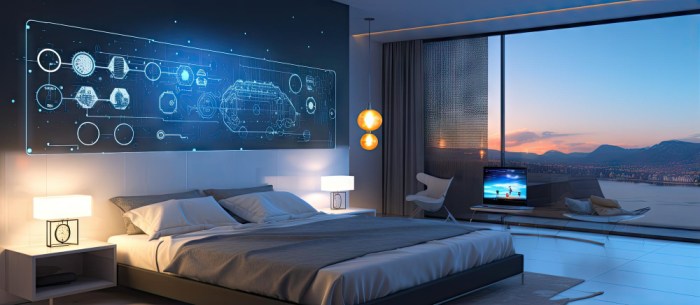How to Choose the Perfect Hotel for Your Trip: Planning a trip is exciting, but finding the right hotel can feel overwhelming. This guide simplifies the process, helping you navigate the options and select a hotel that perfectly complements your travel style and needs. From understanding your budget and desired amenities to analyzing online reviews and securing the best price, we’ll cover every step to ensure your accommodation enhances, not detracts from, your overall experience.
Selecting the ideal hotel involves careful consideration of several key factors. Understanding your travel purpose (business, leisure, family vacation, etc.) is crucial, as this dictates your priorities. Location plays a significant role, influencing convenience and accessibility to attractions. Then, evaluating hotel types – boutique, resort, budget-friendly, or luxury – and comparing their amenities, is vital. Finally, thorough research using online reviews helps in making an informed decision and securing a booking that meets your expectations.
Defining Your Trip Needs
Choosing the perfect hotel begins with a clear understanding of your travel needs. Before you even start browsing websites or reading reviews, take some time to assess your specific requirements. This will help you narrow down your options and ensure you find a hotel that truly meets your expectations, maximizing your enjoyment and minimizing any potential disappointments. Consider the following key aspects of your trip.
Trip Purpose and Traveler Profile
Understanding the purpose of your trip is crucial in determining the type of hotel you need. A business trip will necessitate different amenities than a family vacation or a solo backpacking adventure. For example, a business traveler might prioritize proximity to conference venues, reliable Wi-Fi, and a well-equipped business center. A family might favor a hotel with a pool, kids’ club, and connecting rooms.
A solo traveler might value a quiet location, comfortable accommodations, and perhaps opportunities to socialize with other guests. Clearly defining your trip’s purpose and the type of traveler you are (business, leisure, family, solo, etc.) significantly impacts your hotel selection.
Trip Length and Travel Dates
The duration of your stay directly influences your accommodation choices. A short weekend getaway requires different amenities and perhaps a different price point than an extended two-week vacation. Similarly, travel dates can significantly affect hotel pricing. Peak seasons and popular events often lead to higher rates, so considering these factors in advance helps you budget effectively and secure the best deals.
For instance, a popular holiday weekend may require booking months in advance to secure your preferred hotel and pricing tier.
Essential Amenities and Features
Creating a list of must-have amenities is vital. This list will vary depending on your trip type and personal preferences. Consider factors such as the presence of a swimming pool, fitness center, on-site restaurant, free Wi-Fi, parking, pet-friendliness, accessibility features for those with disabilities, and specific room preferences (e.g., king-size bed, balcony, kitchenette). Prioritizing these needs will allow you to quickly eliminate hotels that lack essential features.
For example, if you’re traveling with a pet, selecting a pet-friendly hotel becomes a non-negotiable requirement.
Budget and Pricing Tiers
Establishing a clear budget is critical. This helps avoid overspending and ensures you stay within your financial constraints. Hotels offer a wide range of price points, from budget-friendly options to luxurious accommodations. Defining your preferred pricing tier—budget, mid-range, or luxury—helps you focus your search on hotels that align with your financial capabilities. For example, a budget traveler might prioritize affordable accommodations and might consider hostels or budget-friendly chains, while a luxury traveler might seek out high-end hotels with personalized service and premium amenities.
Location, Location, Location
Choosing the right hotel location is paramount to a successful trip. The proximity of your hotel to key attractions and transportation options significantly impacts your overall experience, influencing everything from travel time and cost to your ability to fully enjoy your destination. Careful consideration of location will help maximize your vacation time and minimize unnecessary stress.
City Center vs. Outskirts
Staying in the city center offers unparalleled convenience. You’ll likely be within walking distance of many major attractions, museums, restaurants, and shops. This eliminates the need for taxis or public transport for many activities, saving you both money and time. However, city center hotels often come with a higher price tag and a more bustling, sometimes noisy, environment.
Outskirts locations, on the other hand, generally offer quieter surroundings and lower prices. However, you’ll need to factor in extra travel time to reach the city’s main attractions, potentially relying on public transportation or taxis. The ideal choice depends on your priorities: convenience and vibrancy versus tranquility and affordability.
Ideal Neighborhood Characteristics
The best neighborhood for your hotel will depend heavily on the purpose of your trip. A family vacation might prioritize a safe, family-friendly area with parks and playgrounds nearby, perhaps slightly outside the busiest parts of the city. A romantic getaway might favor a charming, historic district with quaint streets, boutique shops, and romantic restaurants. A business trip might necessitate proximity to conference centers and business districts, with easy access to reliable transportation links.
Considering the specific activities and atmosphere you seek will help you narrow down your options.
Hotel Location Comparison
The following table compares three hypothetical hotel locations, highlighting their proximity to attractions and transportation options. This demonstrates how location can significantly influence the overall travel experience.
| Hotel Name | Location | Proximity to Attractions | Transportation Options |
|---|---|---|---|
| Grand Central Hotel | City Center | Walking distance to major museums, theaters, and shopping areas. | Subway station directly across the street, numerous bus routes nearby. |
| Riverside Inn | Near Riverfront | Short taxi ride to city center, scenic riverside walks, and boat tours. | Bus routes and taxi stands readily available. |
| Oakwood Suites | Suburban Area | Requires a 30-minute train ride to reach city center attractions. | Train station within walking distance, limited bus options. |
Hotel Types and Amenities
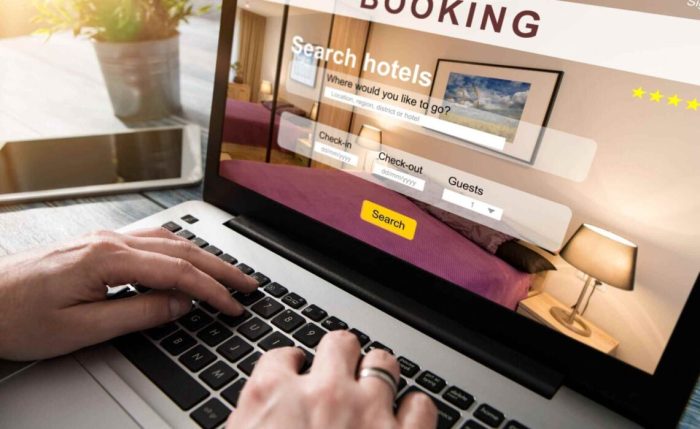
Choosing the right hotel is crucial for a successful trip. Understanding the various types of hotels and the amenities they offer will significantly impact your overall experience. This section will explore different hotel categories and help you identify the essential and desirable amenities based on your travel needs.Hotel types vary greatly, each catering to a specific traveler profile and budget.
The key differences often lie in the level of service, amenities provided, and overall atmosphere.
Hotel Type Comparisons
Hotels can be broadly categorized into several types: budget, mid-range, boutique, resort, and luxury. Budget hotels prioritize affordability, offering basic amenities and often located in convenient, but not necessarily scenic, locations. Mid-range hotels provide a balance between price and amenities, offering a comfortable stay with some added features. Boutique hotels emphasize unique character and personalized service, often featuring stylish decor and a curated guest experience.
Resorts typically offer extensive amenities, such as multiple restaurants, pools, spas, and recreational activities, often situated in desirable locations. Luxury hotels represent the pinnacle of hospitality, providing exceptional service, opulent accommodations, and a wide range of high-end amenities. Each category offers a distinct experience, aligning with different travel styles and budgets. For instance, a family vacation might benefit from a resort’s numerous activities, while a romantic getaway might be better suited to a boutique hotel’s intimate setting.
A business trip might prioritize a hotel’s proximity to the conference center and its business center amenities.
Amenities Enhancing the Guest Experience
A hotel’s amenities significantly influence the guest experience. Amenities can range from the basic (such as Wi-Fi and comfortable beds) to the luxurious (like private butlers and Michelin-starred restaurants). A swimming pool provides relaxation and recreation, while a spa offers pampering treatments. A well-equipped fitness center caters to health-conscious travelers, and an on-site restaurant eliminates the need to search for dining options.
Other amenities might include concierge services, business centers, laundry facilities, and children’s play areas. The availability and quality of these amenities directly contribute to guest satisfaction and overall value for money. For example, a hotel with a rooftop pool offering stunning city views adds significant value compared to a hotel with a basic, enclosed pool.
Essential and Desirable Amenities Based on Trip Needs
The importance of specific amenities varies depending on your travel purpose.
Below is a list of essential and desirable amenities categorized by trip type:
- Business Trip: Essential: High-speed Wi-Fi, business center, convenient location near meeting venues. Desirable: On-site restaurant, fitness center, comfortable workspace in the room.
- Family Vacation: Essential: Family-friendly rooms, children’s activities or play area. Desirable: Pool, on-site restaurant, laundry facilities.
- Romantic Getaway: Essential: Comfortable and well-appointed room, privacy. Desirable: Spa, romantic dining options, scenic views.
- Adventure Trip: Essential: Secure luggage storage, proximity to transportation. Desirable: Fitness center, laundry facilities, early check-in/late check-out options.
Inclusive and Exclusive Hotel Packages
Hotel packages can be either inclusive or exclusive. Inclusive packages bundle various services and amenities into the room rate, such as meals, activities, and transportation. This offers predictability in terms of cost and convenience. Exclusive packages, on the other hand, charge separately for amenities and services. This allows guests more flexibility but requires careful budgeting to avoid unexpected expenses.
For example, an all-inclusive resort package might cover all meals, drinks, and some activities, whereas an exclusive hotel might charge separately for each meal, spa treatment, and activity. The best choice depends on your preferences and travel style. An inclusive package is ideal for those seeking a hassle-free experience with predictable costs, while an exclusive package provides more control and customization but requires careful planning.
Reading Reviews and Comparing Options
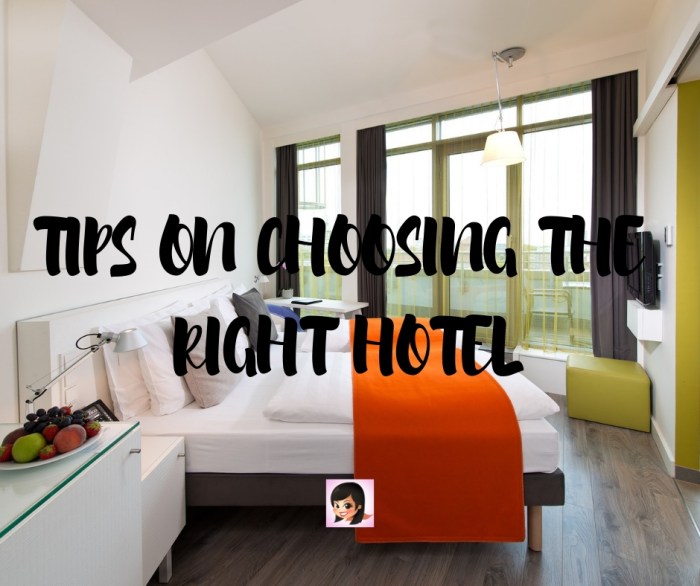
Choosing the perfect hotel often hinges on understanding what other guests have experienced. Online reviews provide invaluable insights, allowing you to make informed decisions based on real-world experiences rather than just marketing materials. By carefully analyzing reviews and comparing different hotels, you can significantly improve your chances of a satisfying stay.Effective analysis of online hotel reviews requires a systematic approach.
Don’t just focus on the overall star rating; delve into the individual reviews themselves. Look for patterns and recurring themes. Consider the reviewer’s profile – a seasoned traveler might offer a more nuanced perspective than someone on their first trip. Pay attention to both positive and negative comments, as they paint a more complete picture.
Analyzing Online Hotel Reviews, How to Choose the Perfect Hotel for Your Trip
When examining online reviews, look beyond simple star ratings. Consider the frequency of specific comments. For example, if multiple reviews mention noise issues, it’s a significant factor to consider. Similarly, consistently positive comments about cleanliness or helpful staff indicate strong points for the hotel. Be wary of reviews that seem overly positive or negative without substantial detail; these may be fake or biased.
Look for reviews that provide specific examples and details to support their claims. For instance, a review stating “the room was dirty” is less informative than one saying “the bathroom floor was stained, and there were crumbs on the carpet.” The latter provides concrete evidence and allows you to gauge the severity of the issue.
Comparing Hotel Features and Services
Once you’ve analyzed reviews for several hotels, it’s crucial to compare their features and services. Create a list of your priorities – is a swimming pool essential? Do you need free Wi-Fi? Is proximity to specific attractions important? Then, compare how each hotel fulfills these requirements.
Websites often provide detailed lists of amenities, but don’t hesitate to cross-reference this information with guest reviews. For instance, a hotel might advertise a “state-of-the-art fitness center,” but reviews might reveal outdated equipment or limited hours. This discrepancy highlights the importance of combining official information with real-world experiences.
Common Issues Highlighted in Guest Reviews
Guest reviews frequently highlight certain recurring issues. Cleanliness is a major concern; look for comments about cleanliness of rooms, bathrooms, and common areas. Noise levels are another frequent complaint, particularly in hotels located near busy streets or with thin walls. The quality of service is also a key factor, with reviews often focusing on staff friendliness, responsiveness, and efficiency.
Other common issues include issues with the hotel’s Wi-Fi, problems with the heating or air conditioning, and the overall comfort and condition of the beds. Consider the frequency and severity of these issues when making your decision.
Hotel Comparison Table
The following table compares three hypothetical hotels based on price, amenities, and guest reviews. Remember that these are examples, and actual prices and reviews will vary.
| Feature | Hotel A | Hotel B | Hotel C |
|---|---|---|---|
| Price (per night) | $150 | $120 | $180 |
| Amenities | Pool, Gym, Free Wi-Fi | Free Breakfast, Free Wi-Fi | Pool, Spa, Free Wi-Fi, Concierge |
| Guest Review Score (out of 5) | 4.2 | 3.8 | 4.5 |
| Common Complaints | Slow Wi-Fi in some rooms | Limited breakfast options | High price |
Booking and Confirmation
Securing your perfect hotel room involves more than just selecting the ideal property; the booking and confirmation process is crucial to ensuring a smooth and stress-free trip. This section details the steps involved, emphasizes the importance of careful review, and offers advice on securing the best price and managing your reservation.Booking a hotel room can be done either directly through the hotel’s website or via online travel agencies (OTAs) like Expedia, Booking.com, or Kayak, or through a traditional travel agent.
Each method offers advantages and disadvantages in terms of price, flexibility, and customer service.
Online Booking Process
Booking directly through a hotel’s website often provides the best prices and access to exclusive deals. The process usually involves selecting your dates, the number of guests, and room type. You’ll then be prompted to enter your personal information and payment details. Finally, you’ll receive an email confirmation with your booking details, including a confirmation number. Using an OTA involves a similar process, but you’ll be browsing a wider selection of hotels and potentially finding deals and package options not available directly through the hotel.
Travel agents, on the other hand, handle the booking process on your behalf, often providing personalized service and access to exclusive deals, although this usually comes with a fee.
Reviewing the Booking Confirmation
Carefully reviewing your booking confirmation is paramount. Verify all details including the dates of your stay, the type of room booked, the number of guests, the total price, and any included amenities or services. Note the cancellation policy, as this will dictate the terms under which you can modify or cancel your reservation without penalty. Mismatched information can lead to problems upon arrival, such as being charged extra fees or being denied a room.
Compare the information on your confirmation to your initial booking request to ensure accuracy.
Securing the Best Price
Several strategies can help secure the best possible hotel price. Booking in advance, especially during peak season, can often secure lower rates. Consider traveling during the shoulder season (the periods between peak and off-peak seasons) for better deals. Utilizing price comparison websites allows you to compare rates across different booking platforms. Consider signing up for loyalty programs with hotels or OTAs, as these often offer exclusive discounts and benefits.
Flexibility with your travel dates can also yield significant savings. Finally, be wary of hidden fees, such as resort fees or parking charges, which can significantly increase the overall cost.
Modifying or Canceling a Reservation
The process for modifying or canceling a hotel reservation varies depending on the hotel’s policy and the booking platform used. Most bookings allow for modifications, such as changing dates or room type, but this might incur additional fees. Cancellation policies usually specify a timeframe within which you can cancel without penalty. Always check the cancellation policy before booking and contact the hotel or booking platform directly to make any changes or cancellations.
Failure to adhere to the cancellation policy may result in forfeiture of your deposit or the full cost of your stay. Keep a record of all communication with the hotel or booking platform regarding modifications or cancellations.
Visualizing Your Stay
Choosing a hotel is more than just comparing prices and locations; it’s about envisioning yourself comfortably nestled within its walls, enjoying a relaxing and rejuvenating experience. To make the best choice, it’s helpful to create a mental picture of your ideal stay, considering the layout, views, and sensory details that will contribute to your overall enjoyment.Before booking, consider what elements will truly enhance your stay.
A clear visualization will help you identify hotels that best match your preferences and expectations, leading to a more satisfying travel experience.
Ideal Room Layout and Features
The ideal room layout and features will depend heavily on the purpose of your trip. For a romantic getaway, a spacious room with a king-size bed, a comfortable sitting area, and perhaps a private balcony would be perfect. For a family vacation, a suite with separate bedrooms and a living area would provide more space and privacy. Business travelers might prioritize a well-lit workspace with ample desk space and reliable Wi-Fi.
Consider the number of occupants and their needs – extra beds, cribs, or accessibility features – when visualizing the ideal space. Think about the functionality of the room: adequate storage, good lighting, and a well-equipped bathroom are all crucial elements. Imagine yourself easily moving around the room, having ample space for your luggage, and feeling comfortable and relaxed in your surroundings.
Desired Views from the Hotel
The view from your hotel room or common areas can significantly impact your experience. A stunning ocean view can provide a calming backdrop for relaxation, while a city skyline view can offer exciting urban panoramas. If you’re a nature enthusiast, a mountain view or a vista overlooking a lush landscape might be preferable. Consider the time of day and the direction the room faces when thinking about potential views.
For instance, a west-facing room might offer beautiful sunsets, while an east-facing room might provide a view of the sunrise. Visualize yourself waking up to a breathtaking sunrise or enjoying a quiet evening with a spectacular view as a backdrop. Consider whether you prefer a bustling city view or the tranquil serenity of a natural landscape.
Sensory Experience of the Ideal Hotel
Imagine yourself stepping into your ideal hotel. The sight of a pristine, elegantly decorated room greets you; perhaps soft, natural light streams through large windows, illuminating polished wood floors and comfortable furnishings. The gentle sound of a nearby fountain or soft background music creates a peaceful ambiance. The air is subtly scented with fresh linens and a hint of floral fragrance.
The feel of soft, plush carpets under your feet and the smooth texture of the bed linens enhance the overall feeling of comfort and luxury. Perhaps the gentle warmth of a fireplace adds to the cozy atmosphere. Consider every sense: the visual appeal of the decor, the calming sounds, the pleasant aromas, and the comforting textures.
By visualizing these sensory details, you can select a hotel that promises a truly immersive and memorable experience.
Last Word: How To Choose The Perfect Hotel For Your Trip

Finding the perfect hotel is about more than just a place to sleep; it’s about enhancing your overall travel experience. By thoughtfully considering your needs, researching options, and comparing amenities, you can ensure your hotel choice aligns seamlessly with your trip’s purpose and budget. Remember to read reviews carefully, book in advance for better deals, and visualize your ideal stay to make the most of your trip.
With a little planning, your hotel will become a haven of comfort and convenience, allowing you to focus on creating unforgettable memories.
Questions Often Asked
What is the best time to book a hotel for the best rates?
Generally, booking several weeks or even months in advance, especially during peak seasons, often secures the best rates. However, last-minute deals sometimes appear, especially for less popular travel dates.
How can I ensure my hotel room is accessible?
When booking, clearly specify your accessibility needs (wheelchair access, roll-in shower, etc.) to the hotel or booking platform. Confirm these details are accommodated before finalizing your reservation.
What should I do if there’s a problem with my hotel room upon arrival?
Immediately contact the hotel reception. Most hotels are responsive to guest concerns and will work to resolve any issues, such as cleanliness problems or malfunctioning amenities, promptly.
Are there any hidden fees I should be aware of?
Always review the complete pricing details before confirming your booking. Be mindful of potential extra charges for things like resort fees, parking, or Wi-Fi.
What payment methods are typically accepted by hotels?
Most hotels accept major credit and debit cards. Some may also accept cash or other payment methods, but it’s always best to check their specific policies beforehand.

